
Pakistan’s rising urban middle-class has seemingly accepted the obvious influence of the American dollar in the country’s economy and in their daily lives as majority of the segment is now looking for ways to earn in dollar or other foreign currencies.
Earning in dollars for many is key to maintain their lifestyles in such an inflationary time. And in order to earn in dollars, or other foreign currencies, migration to the US, UK, Canada or Australia has become first priority.
According to data released recently by the Bureau of Emigration and Overseas Employment (BEOE), some 832,339 Pakistanis left the country in 2022 in an attempt to secure a better future.
The number of immigrants in 2022 is significantly higher than the 288,280 having left in 2021. In 2015, however, 946,571 Pakistani’s left for the overseas, the highest number so far recorded in the history of the country.
Since then, the number of immigrants dropped to 225,213 in 2020, before it jumped once again to 832,339 in 2022.
Pakistan’s current population is estimated to be around 220 million. Of this, the relocation of nearly one million people per annum is a sign of worry for many; especially at a time when hyper-inflation, due to the rupee devaluation and other administrative issues, had made the lives of aspiring youngsters very difficult.
“I believe that I will be unable to maintain my lifestyle in Pakistan, given the current circumstances, which are becoming worse with each passing day,” said Faizan Haider, a young professional based in Lahore.
“Although I currently draw a handsome salary, I think I can make a better living if I try my luck outside Pakistan. To do that, I am even willing to take on some odd jobs initially before returning to my professional field,” he added.
“Earning in dollars is the need of the day. It is necessary to combat the effect of rupee devaluation which has propelled the price of essential commodities and luxury items in Pakistan,” elaborated Haider.
The working and business class is much more concerned now about the state of the country’s economy and the looming risk of default.
As per the State Bank of Pakistan (SBP), Pakistan’s total foreign reserves currently stand at around $8.74 billion, whereas the value of the Pakistani rupee against the dollar is hovering around Rs276.58, the highest in the country’s history.
Interestingly though, a majority of the Pakistanis heading abroad are not professionals. Ordinary citizens, with little to no experience, are heading to greener-pastures to try their luck with hopes of getting a well-paid job opportunity.
Others, however, have warned that the endeavour is not as easy as it was two decades ago.
“It is much difficult to survive in the United Kingdom now, especially during times of economic turmoil,” said Asif Tourab, a Pakistani born UK national.
A majority of the people who landed in the UK are not qualified enough to adjust to this new society, especially in the post-Brexit era – but if you are a professional, then chances are that you can get a good job.
“I work in the field of cyber security – a relatively new field with a lot of space. The same is the case in the fields of Artificial Intelligence and robotics. The situation here, however, is also becoming tough for those who came here on a student visa,” he maintained.
“These countries are now highly saturated with a strong presence of migrants and many companies are laying off employees. There is however, still a chance for those who come here with a plan and have some professional or technical experience. But things are difficult for others,” added Tourab.
Apart from those who think that this is a brain-drain, some analysts believe that the relocation of some Pakistanis to other countries, especially to first-world countries, is an export of manpower which in return brings dollars in the shape of remittances, an important pillar of Pakistan’s economy.
Speaking to the Express Tribune, economist and professor, Doctor Qais Aslam said, “Brain-drain is not always a negative thing. Countries also build their economies by exporting manpower to other countries.”
Citing the example of India, he said, “They have a large number of expats working in other economies and send huge amounts of remittances back to their home-country. This has strengthened their economy. But India has a much larger number of professionals in the field of information technology, medicine, and the financial sector through which they are also adding their own influence to western think tanks,” added Aslam.
In 2022, India touched the $100 billion figure in the shape of remittances, whereas Pakistan’s total amount of remittances for the year 2022 stood at $29.5 billion.
“Pakistan is a populous country; we don’t have many opportunities for such a huge number since our economy is not that strong,” he said.
Explaining the importance of capacity building, Aslam urged for the upgradation of the Pakistani syllabus at the school and university levels in order to “create professionals who can better serve opportunities in Pakistan and abroad”.
“We must give ownership of land to Pakistani expats who have high achievements in their fields – this world works on trust and this will help build that trust with Pakistan,” urged Aslam.
Published in The Express Tribune, February 5th, 2023.
Like Business on Facebook, follow @TribuneBiz on Twitter to stay informed and join in the conversation.




1731975305-0/Untitled-design-(40)1731975305-0-165x106.webp)
1731975060-0/Untitled-design-(39)1731975060-0-165x106.webp)


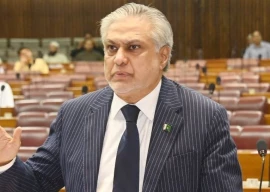
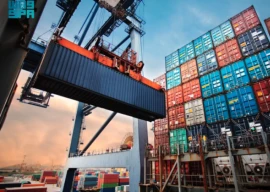
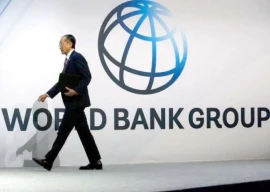

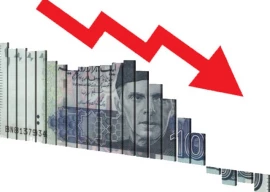
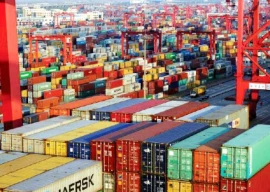







COMMENTS (6)
Comments are moderated and generally will be posted if they are on-topic and not abusive.
For more information, please see our Comments FAQ